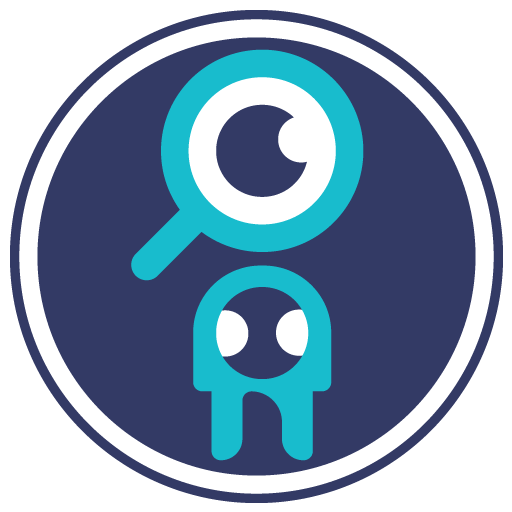193.82K reviews
176.93K followers
- 72.57K users like this
- Claimed
ChatGPT, developed by OpenAI on the GPT-3 architecture, excels in generating human-like text. Its key features include versatile style adaptability and high-quality responses, enhancing user engagement and productivity.
LICENSE MODEL
Freemium
PRODUCT MODEL
Proprietary
PLATFORMS
- Mac
- Online
- iPhone
- iOS
- Android
ChatGPT CATEGORIES ON SEOTESTINGTOOLS.COM
What is ChatGPT?
Table of Contents
In the ever-evolving landscape of artificial intelligence, ChatGPT has emerged as a game-changing technology that’s reshaping how businesses interact with customers, generate content, and streamline operations. As a tech-savvy business consultant, you’re likely wondering how this powerful language model can benefit your organization or clients. Let’s dive into the world of ChatGPT and explore its potential to transform various aspects of modern business.ChatGPT: Revolutionizing AI-Powered Conversations
Understanding ChatGPT
The Evolution of Language Models
The journey to ChatGPT began with early attempts at natural language processing, which often resulted in clunky, robotic responses. Over time, researchers made significant strides…In the ever-evolving landscape of artificial intelligence, ChatGPT has emerged as a game-changing technology that’s reshaping how businesses interact with customers, generate content, and streamline operations. As a tech-savvy business consultant, you’re likely wondering how this powerful language model can benefit your organization or clients. Let’s dive into the world of ChatGPT and explore its potential to transform various aspects of modern business.ChatGPT: Revolutionizing AI-Powered Conversations
Understanding ChatGPT
The Evolution of Language Models
The journey to ChatGPT began with early attempts at natural language processing, which often resulted in clunky, robotic responses. Over time, researchers made significant strides in developing more sophisticated models capable of understanding context and generating human-like text. ChatGPT represents the culmination of these efforts, offering a level of conversational AI that was once the stuff of science fiction.OpenAI and GPT-3 Architecture
ChatGPT is the brainchild of OpenAI, a research organization at the forefront of AI development. Built on the powerful GPT-3 (Generative Pre-trained Transformer 3) architecture, ChatGPT leverages vast amounts of training data to generate coherent and contextually appropriate responses. This foundation allows it to engage in a wide range of tasks, from answering questions to creative writing.Key Features of ChatGPT
Natural Language Processing Capabilities
One of ChatGPT’s most impressive features is its ability to understand and generate natural language with remarkable accuracy. It can interpret complex queries, detect subtle nuances, and respond in a way that feels surprisingly human-like. This capability opens up a world of possibilities for businesses looking to enhance their customer interactions.Contextual Understanding and Response Generation
Unlike simpler chatbots that rely on predefined scripts, ChatGPT excels at maintaining context throughout a conversation. It can remember previous exchanges and use that information to provide more relevant and personalized responses. This contextual awareness makes it an invaluable tool for businesses seeking to offer more engaging and meaningful interactions with their customers.Multi-Turn Conversations
ChatGPT shines in its ability to handle multi-turn conversations. It can engage in back-and-forth exchanges, ask for clarification when needed, and even steer conversations in productive directions. This feature makes it particularly useful for complex customer support scenarios or collaborative problem-solving tasks.Applications Across Industries
Customer Service and Support
In the realm of customer service, ChatGPT is a game-changer. It can handle a wide range of inquiries, from simple FAQ-type questions to more complex troubleshooting issues. By implementing ChatGPT, businesses can offer 24/7 support, reduce wait times, and free up human agents to focus on more complex cases. For example, Taja AI offers similar AI-powered customer service solutions that can complement ChatGPT’s capabilities, providing businesses with a comprehensive approach to automating customer interactions.Content Creation and Marketing
Content creators and marketers are finding ChatGPT to be an invaluable tool for generating ideas, writing drafts, and even producing full articles. While it’s important to note that human oversight and editing are still crucial, ChatGPT can significantly speed up the content creation process. For businesses looking to scale their content production, tools like Blogster AI can work in tandem with ChatGPT to streamline the entire content pipeline, from ideation to publication.Education and E-learning
The education sector is rapidly adopting AI-powered tools to enhance learning experiences. ChatGPT can serve as a tireless tutor, answering students’ questions, providing explanations, and even generating practice problems. Its ability to adapt to different learning styles and paces makes it a valuable asset in personalized education.Healthcare and Medical Assistance
While it’s crucial to emphasize that ChatGPT is not a substitute for professional medical advice, it can play a supportive role in healthcare. It can assist with appointment scheduling, provide general health information, and even help patients understand complex medical terminology. As AI continues to evolve, we may see more specialized versions of ChatGPT designed specifically for healthcare applications.Advantages of Using ChatGPT
Improved Efficiency and Productivity
By automating routine tasks and providing instant responses, ChatGPT can significantly boost efficiency across various business functions. From customer support to content creation, it allows teams to focus on higher-value tasks that require human creativity and strategic thinking.24/7 Availability and Scalability
One of the most compelling advantages of ChatGPT is its ability to operate around the clock without fatigue. This constant availability ensures that businesses can provide support and engage with customers at any time, regardless of time zones or holidays. Moreover, ChatGPT can handle multiple conversations simultaneously, making it highly scalable for growing businesses.Consistent User Experience
Human agents, no matter how well-trained, can have off days or inconsistencies in their responses. ChatGPT, on the other hand, delivers a consistent level of service every time. This uniformity in communication can help businesses maintain a strong brand voice and ensure that all customer interactions meet a certain quality standard.Limitations and Challenges
Potential Biases and Ethical Concerns
As with any AI system, ChatGPT is not immune to biases present in its training data. These biases can manifest in various ways, from gender stereotypes to cultural insensitivities. Businesses must be aware of these potential issues and implement safeguards to ensure fair and ethical use of the technology.Accuracy and Factual Reliability
While ChatGPT is impressive in its ability to generate coherent text, it’s not infallible when it comes to factual accuracy. It can sometimes produce convincing-sounding but incorrect information, a phenomenon often referred to as “hallucination” in AI circles. This limitation underscores the importance of human oversight and fact-checking, especially for critical applications.Privacy and Data Security Considerations
As ChatGPT processes vast amounts of text data, concerns about privacy and data security naturally arise. Organizations must carefully consider how they implement ChatGPT, ensuring that sensitive information is protected and that they comply with relevant data protection regulations.ChatGPT vs. Other AI Models
Comparing Performance and Capabilities
While ChatGPT is undoubtedly a leader in the field of conversational AI, it’s not the only player in the game. Other models like GPT-3, BERT, and industry-specific AI solutions offer their own unique strengths. As a business consultant, it’s crucial to evaluate these different options based on specific use cases and requirements.Integration with Existing Systems
One of the key considerations when adopting ChatGPT or any AI model is how well it integrates with existing business systems. Fortunately, many AI platforms offer APIs and other integration tools that allow for seamless incorporation into current workflows. This interoperability is essential for maximizing the value of AI investments.Impact on Business Operations
Transforming Customer Engagement
ChatGPT is revolutionizing how businesses interact with their customers. From providing instant support to offering personalized product recommendations, it’s enabling a level of engagement that was previously impossible at scale. This enhanced interaction can lead to improved customer satisfaction, increased loyalty, and ultimately, better business outcomes.Streamlining Internal Processes
Beyond customer-facing applications, ChatGPT can also play a significant role in optimizing internal processes. It can assist with everything from drafting internal communications to summarizing lengthy reports. This versatility makes it a valuable tool for improving overall organizational efficiency.Enhancing Decision-Making
By processing and analyzing vast amounts of text data, ChatGPT can provide valuable insights to support decision-making processes. While it shouldn’t be relied upon as the sole source of information for critical decisions, it can certainly augment human expertise and help identify patterns or trends that might otherwise be overlooked.Ethical Considerations in AI Adoption
Transparency and Accountability
As businesses increasingly rely on AI systems like ChatGPT, it’s crucial to maintain transparency about when and how these tools are being used. Customers should be informed when they’re interacting with an AI, and there should be clear accountability structures in place for the outputs generated by these systems.Ensuring Human Oversight
While ChatGPT is incredibly capable, it’s not a replacement for human judgment and expertise. Implementing proper human oversight is essential to catch potential errors, address complex situations that require empathy or nuanced understanding, and ensure that the AI aligns with the company’s values and ethical standards.Future Prospects and Developments
Ongoing Research and Improvements
The field of AI is evolving at a breakneck pace, and ChatGPT is no exception. Researchers at OpenAI and other organizations are continuously working to improve the model’s capabilities, reduce biases, and enhance its understanding of complex concepts. As these improvements roll out, we can expect to see even more sophisticated and useful applications of the technology.Potential Game-Changing Applications
As ChatGPT and similar AI models continue to advance, we’re likely to see entirely new applications emerge. From AI-assisted scientific research to more immersive virtual reality experiences powered by natural language interactions, the possibilities are truly exciting. Businesses that stay ahead of these developments will be well-positioned to leverage new opportunities as they arise.Implementing ChatGPT in Your Organization
Assessing Business Needs and Use Cases
Before diving into ChatGPT implementation, it’s crucial to carefully assess your organization’s specific needs and identify the most promising use cases. Consider areas where natural language processing could provide the most significant benefits, whether that’s in customer service, content creation, or internal knowledge management.Integration Strategies and Best Practices
When integrating ChatGPT into your business processes, it’s important to follow best practices to ensure smooth adoption and maximize ROI. This includes proper trainingView Less ❰ChatGPT, developed by OpenAI on the GPT-3 architecture, excels in generating human-like text. Its key features include versatile style adaptability and high-quality responses, enhancing user engagement and productivity.
Product Description
What are the features of ChatGPT?
Language Generation
- Generates human-like text responses
- Supports a wide variety of styles and formats
- Context-aware responses based on user input
- Ability to engage in dynamic conversations
- Article and blog post generation
- Social media content creation
- Creative writing assistance
- Real-time conversation capabilities
- Feedback-driven learning for improving responses
- Built on the advanced GPT-3 architecture
- High-quality text generation
User Sentiment
- ChatGPT is a powerful language model developed by OpenAI that is specifically designed for generating human-like text in response to user input.
- Users appreciate the versatility of ChatGPT, noting its ability to generate high-quality text in various styles and formats, making it suitable for a wide range of applications.
- Reviewers frequently commend the model for its conversational abilities, creative content generation, and the overall fluidity of its responses.
- While many users note minor issues with context retention in longer conversations, the overall feedback highlights ChatGPT’s effectiveness and innovative approach to natural language processing.
Official Links
ChatGPT information
- Developed By: OpenAI
- Email Support: [email protected]
- Year Founded: 2020
- HQ Location: San Francisco, CA
- Supported Languages: English, Spanish, French, German, Italian, Portuguese, Dutch, Russian, Chinese, Japanese, Korean, Arabic
ChatGPT status
Is ChatGPT down? NO
Current ChatGPT status: Up
NOTE: There are 0 reported issues in the last 24h.
Last check: 1 second ago





